1212AFC032312 – Catholic Letter Series
Read it online here.
KJV 1 Peter 2:4 To whom coming, as unto a living stone, disallowed indeed of men, but chosen of God, and precious, 5 Ye also, as lively stones, are built up a spiritual house, an holy priesthood, to offer up spiritual sacrifices, acceptable to God by Jesus Christ.
NIV 1 Peter 2:4 As you come to him, the living Stone– rejected by men but chosen by God and precious to him– 5 you also, like living stones, are being built into a spiritual house to be a holy priesthood, offering spiritual sacrifices acceptable to God through Jesus Christ.
NAB 1 Peter 2:4 Come to him, a living stone, rejected by human beings but chosen and precious in the sight of God, 5 and, like living stones, let yourselves be built into a spiritual house to be a holy priesthood to offer spiritual sacrifices acceptable to God through Jesus Christ.
Aloha nui loa, Beloved. Today we are going to look at a beautiful letter attributed to Peter, also called Cephas (KAY-phus) which means Rock in Aramaic and is also a Greek word for rock Κηφᾶς.
In this letter, Peter gives us many beautiful images, draws many examples from Old Testament writers, and presents a wide array of topics that address many aspect of life in the early Church. The one I chose for the open in this message is one of my very favorites. In this he makes a connection between Christ, “the stone which the builders rejected,” and believers who have become “living stones,” that is to say like Christ in that they are to be Holy, submissive to God, and to build a holy dwelling which will be a Holy Nation serving God. The word for “living” used here is ζῶντα zaonta {dzah’-on-tah} from za,w zao {dzah’-o}. za,w is the verb “to live,” and ζῶντα is “living.” But it carries a much deeper connotation that being “merely alive.” One example is in the term “living water.” This is water that has “vital power in itself and exerting the same upon the soul.” It is living that is fresh, strong, efficient, active, powerful, and efficacious. We come to Christ as living stones animated with the same capacity for holiness found in the Apostles because that holiness comes from and through Christ. What a mighty image that brings to mind!
Peter tells us Christ was “chosen by God and precious to him.” Christ, the Messiah is “called ‘elect,’ as appointed by God to the most exalted office conceivable.” And we are called to that same life as his servants. We are called the elect, the chosen because “Even before he made the world, God loved us and chose us in Christ to be holy and without fault in his eyes” (Ephesians 1:4) This word is ἐκλεκτός eklektos {ek-lek-tos’} and it denotes the best of its kind or class.
As living stones, we are to be built into a “spiritual house,” a family for generations, offering up ” spiritual sacrifices acceptable to God through Jesus Christ.” WOW! That is such a powerful statement, because it describes not only our calling, but also the fulfillment of that calling.
In 1 Peter 1:8-9 Peter tells us, “Though you have not seen him, you love him; and even though you do not see him now, you believe in him and are filled with an inexpressible and glorious joy, for you are receiving the goal of your faith, the salvation of your souls.” What is that inexpressible joy and how do we feel it? How do we recognize it? It is the power of his love as delivered to us in and through the Holy Spirit that makes our hearts and minds leap for joy as we raise hearts and hands and voices to praise god for his generous love, unfailing promise, and awesome presence in our lives.
In 1 Peter 2:9 Peter tells us the reason God has fashioned us a living stone. “But you are a chosen people, a royal priesthood, a holy nation, a people belonging to God, that you may declare the praises of him who called you out of darkness into his wonderful light.” God is Light. We are called to live in the Light, to let our Light shine, to be the Light shining in the darkness. In John 8:12, Jesus says, “I am the light of the world. Whoever follows me will never walk in darkness, but will have the light of life.”
There are dozens of power-packed images like that in this single short letter. Scholars generally agree that it was written by Peter, with help from Silas (who may have been a “professional writer,” helping Peter achieve a very polished Greek text which might have been a bit out of Peter’s reach normally). The letter is addressed to churches planted by Paul and his fellow sojourners in Asia Minor: Pontus, Galatia, Cappadocia, Asia, and Bithynia. That may have been the order in which a courier might have delivered the letter to those churches.
The letter mentions persecutions, suffering with Christ as we daily take up our cross, even dying under persecutions for the Gospel and for the joy we have of being so close to our Savior and God. I looked at several analyses of how this letter is put together, and here is a listing based on those reviews:
- 1 Peter 1:1–12: The JOY we have in knowing God loves us so much he provided a Perfect Sacrifice for our salvation – his only begotten son.
- 1 Peter 1:13–2:3: God’s love should inspire us to v-be some much like him that we strive mightily to be holy as he is holy.
- 1 Peter 2:4–12: Israel, the children of Abraham, Isaac, and Jacob, was the People God chose to be distinctly his own, the People of the First Covenant. Despite the many times they ignored that, God honored his promises, and not only made Abraham the father of many nations, he also us part of Abraham’s descendants through Jesus sacrificial suffering.
- 1 Peter 2:13-23: We can share in, identify with, and submit to persecution and suffering with Jesus and for the Gospel. Whenever we do so, we die a bit to ourselves and to the world, but we also glorify God.
- 1 Peter 2:24‐25: Jesus’ expiation (The complete reconciliation of God and humans brought about by the redemptive life and death of Jesus) of our sins is a powerful, awesome, incomprehensibly valuable gift – it is a gift given through the Grace of God, and that brings us back to the “Shepherd and Overseer” of our souls – our Creator, God. How can we begin to measure how grateful that can make us feel?!?
- 1 Peter 3:1‐7: God is community as the Trinity. He established family as a community through the sacrament of marriage. Husbands and wives can honor this sacred vocation by honoring one another, loving one another as God has loved them. Dishonoring one’s spouse is point-blank dishonoring God.
- 1 Peter 3:8‐22: This passage begins, ” Finally, all of you, have unity of mind, sympathy, brotherly love, a tender heart, and a humble mind. Do not repay evil for evil or reviling for reviling, but on the contrary, bless, for to this you were called, that you may obtain a blessing.” Peter goes on to say that under no circumstance or persecution and suffering should we seek to harm those who bring about that persecution and suffering. If we suffer for doing what is good, that is so much better than suffering for doing evil!
- 1 Peter 4:1‐11: The World wants us to be like them, and constantly entices us to live “in sensuality, passions, drunkenness, orgies, drinking parties, and lawless idolatry.” They make fun of us for being “religious nuts,” but when Judgment comes, they will have one hell of a time coming to them. As for us, we are to ” keep loving one another earnestly, since love covers a multitude of sins (theirs and ours). Show hospitality to one another without grumbling. As each has received a gift, use it to serve one another. Jesus blood cleansed you of your sins – the ways you have hurt yourself, your community, and your God; is blood also cleansed the sins of those who hurt you, hurt your community, and offend our God. His sacrifice covers all completely, permanently, eternally.
- 1 Peter 4:12‐19: “No matter how you struggle or strive, you’ll never get out of this world alive.” And struggle and strive as we might, we will always be facing situations where our suffering persists. Rather than wail and gnash or teeth, we can rejoice because are blessed, in that suffering when “the Spirit of glory and of God rests” upon us. ” Therefore let those who suffer according to God’s will entrust their souls to a faithful Creator while doing good.”
- 1 Peter 5:1‐6: When the World sees us acting this way – joyous in serving, joyous in suffering – they will want to know more about our joy and more about our shepherd. Those who are chosen for servant- leadership through the gifts of God will serve gladly, equitably, humbly – as did Christ. I probably will never be easy, but Peter tells us ” after you have suffered a little while, the God of all grace, who has called you to his eternal glory in Christ, will himself restore, confirm, strengthen, and establish you.”
- 1 Peter 5:7‐14: God will do all these powerful and wonderful things to and for us because of his intense, eternal, infallible LOVE. No matter what Satan tries to do to us to destroy our relationship with God, that relationship is always restored when we reconfirm our alliance with God and rejoice in the wonder of his uncompromising love and care.
Share-A-Prayer
M&PC wrote to tell us, “We are praying for whole world for peace, safety, and wellbeing everywhere.” What an excellent prayer intention. Maybe you can add it to your list of intentions. So many places around the world are experiencing terrible weather, terrible acts of evil, terrible acts of violence. Pray that Peace will rule the planet, and let it begin with you.
Please continue to pray for the family of Baby Cheyanne. She lost her battle with multiple health problems. It has been so difficult for Mom and Dad, and for the whole family. They know Cheyanne has found 100% healing in the Light of His Glory and Love. The loss of that sweet child, however, was a hard blow. Pray for them to return to the joy they anticipated the moment she was born.
Pray for those who suffer for their faith. You would think that “in this day and age” religious persecution – even to the point of martyrdom – would be nonexistent. But it is not.
Pray for everyone who suffers poverty, injustice, hunger, loss of work or loss of income; for those who suffer through illnesses like cancer, mental illness, chronic disease, acute or chronic pain; pray for those whose family are falling apart and for those whose families are just beginning or just beginning to heal.
Finally beloved, pray for one another. You know there is a Daily Intercessory Prayer List. Whenever you pray the MBN prayer, that short prayer includes all of the intentions in the Intercessory prayer list – over 100 now.
Whatever, whenever, wherever, whoever, however, if ever, forever — at your service, Beloved.
chick







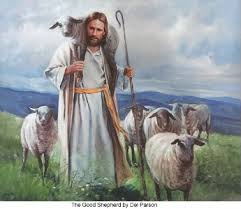 recall his words, “I AM the Good Shepherd.” This is one of the seven I AM Statements all of which are in the Gospel of John. I want to call your attention to the two highly significant words in each of these – I AM. In the New Testament, these appear in Greek as Ἐγώ εἰμι
recall his words, “I AM the Good Shepherd.” This is one of the seven I AM Statements all of which are in the Gospel of John. I want to call your attention to the two highly significant words in each of these – I AM. In the New Testament, these appear in Greek as Ἐγώ εἰμι  rejected by the builders. Here again, if we take a peek beneath the language used, the word rejected in Hebrew is מָאֲס֣וּ
rejected by the builders. Here again, if we take a peek beneath the language used, the word rejected in Hebrew is מָאֲס֣וּ 

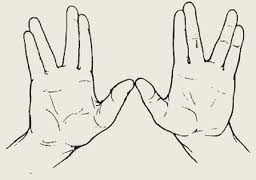
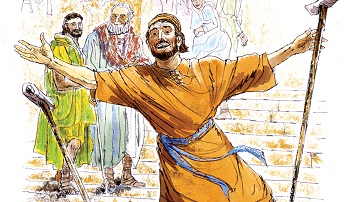 Beautiful Gate of the Temple. Just before this, they had passed a well-known beggar who had been lame from birth. He sat near that location, and “everyone” knew him because he was always there. He asked The Apostle Peter for alms. Here the newly-empowered Apostles took him by the right arm and The Apostle Peter said, “I have no silver or gold, but what I have I give you; in the name of Jesus Christ of Nazareth, stand up and walk.” (
Beautiful Gate of the Temple. Just before this, they had passed a well-known beggar who had been lame from birth. He sat near that location, and “everyone” knew him because he was always there. He asked The Apostle Peter for alms. Here the newly-empowered Apostles took him by the right arm and The Apostle Peter said, “I have no silver or gold, but what I have I give you; in the name of Jesus Christ of Nazareth, stand up and walk.” (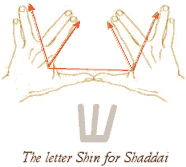 24 The Lord bless you and keep you;
24 The Lord bless you and keep you;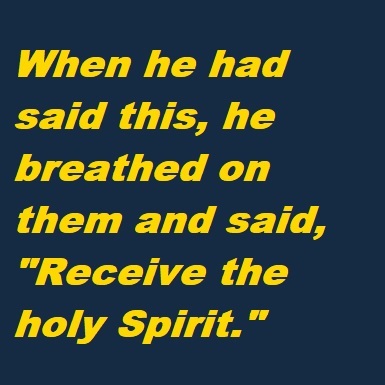 (See
(See 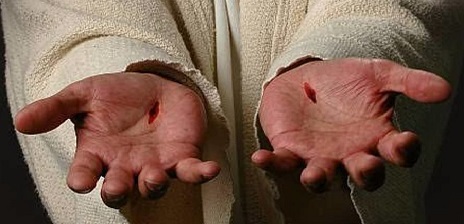
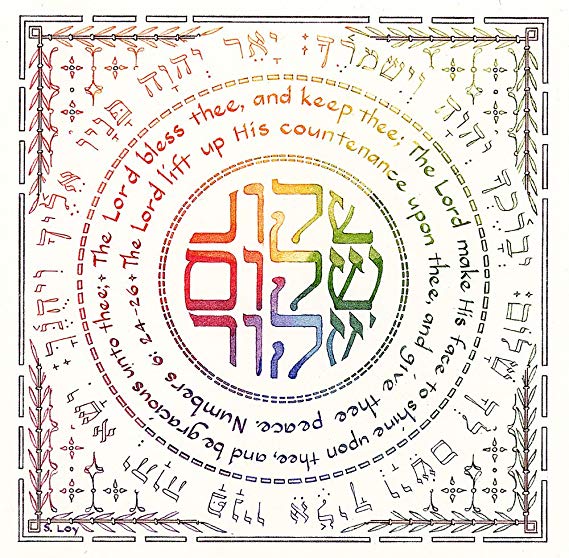

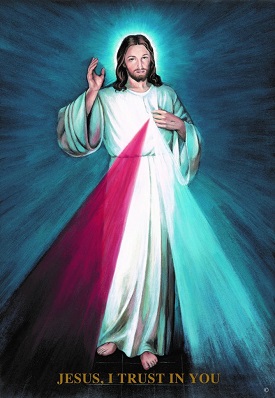
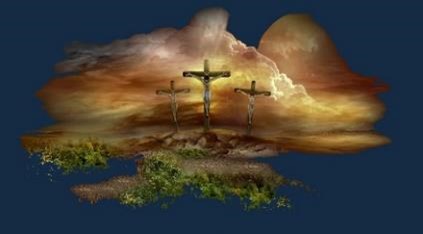 Today is Good Friday. Today I am thinking about what happened on Good Friday in Jesus’ life. I am thinking about how and why it happened. I am thinking how you, how I, how we might have connections to that moment of Jesus’ crucifixion. It is not a pleasant subject, but it has been laid on my heart since before Lent began to cover this topic, the connection between Love and human depravity.
Today is Good Friday. Today I am thinking about what happened on Good Friday in Jesus’ life. I am thinking about how and why it happened. I am thinking how you, how I, how we might have connections to that moment of Jesus’ crucifixion. It is not a pleasant subject, but it has been laid on my heart since before Lent began to cover this topic, the connection between Love and human depravity.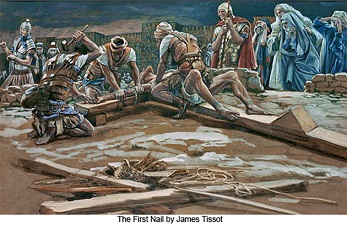 gratification. My personal belief is that the Crucifixion Squads the Romans used were comprised of men – usually a team of four soldiers and one Centurion – who enjoyed their work immensely. Execution by torture is mentioned in many ancient histories of empires and nations including some in the Bible. Crucifixion is one of the cruelest forms of execution. There are others that fall into that category of extreme cruelty, but they are so gruesome I cannot mention them here. There is no civilization, no nation, or no empire that has not employed torture at some time in its history. Does that seem remarkable, or odd, or inaccurate? It is none of those things.
gratification. My personal belief is that the Crucifixion Squads the Romans used were comprised of men – usually a team of four soldiers and one Centurion – who enjoyed their work immensely. Execution by torture is mentioned in many ancient histories of empires and nations including some in the Bible. Crucifixion is one of the cruelest forms of execution. There are others that fall into that category of extreme cruelty, but they are so gruesome I cannot mention them here. There is no civilization, no nation, or no empire that has not employed torture at some time in its history. Does that seem remarkable, or odd, or inaccurate? It is none of those things.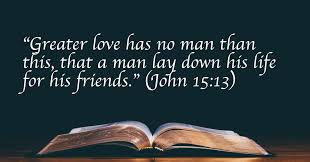 Series. God is Love and that Love is perfected in Jesus’ sacrifice and conveyed to us in his Resurrection through our participation in the Holy Eucharist. It is that Love, and only that Love, which makes being a humane earthling possible. Only because of the Love of God, manifested in Christ Jesus, can we be caring, kind, gentle, meek, humble, compassionate, charitable, benevolent, good, and holy. “There is no other way?” you ask. No, there is no other way. Not so interested in being a Christian because religions bum you out? It doesn’t matter. It is still because of God’s Love and Christ’s death and Resurrection that you and I have the capacity to be all those wonderful, Godly things. “How could there have been good people who were wonderfully humane before Christ, and how can people today be all of those things and more without being Christians?” Because of God’s Covenant of Love which begins and ends in the Eternal Love of God given to us in Jesus by the ministry of the Holy Spirit. It is Love that saves me, saves you, saves us from the evil that has consumed every soul that devised and committed any kind of sin – including torture. Whatever goodness might manifest in others who are not Christians comes from the Manifest Grace of God in Christ Jesus. That is why Christ commands us to
Series. God is Love and that Love is perfected in Jesus’ sacrifice and conveyed to us in his Resurrection through our participation in the Holy Eucharist. It is that Love, and only that Love, which makes being a humane earthling possible. Only because of the Love of God, manifested in Christ Jesus, can we be caring, kind, gentle, meek, humble, compassionate, charitable, benevolent, good, and holy. “There is no other way?” you ask. No, there is no other way. Not so interested in being a Christian because religions bum you out? It doesn’t matter. It is still because of God’s Love and Christ’s death and Resurrection that you and I have the capacity to be all those wonderful, Godly things. “How could there have been good people who were wonderfully humane before Christ, and how can people today be all of those things and more without being Christians?” Because of God’s Covenant of Love which begins and ends in the Eternal Love of God given to us in Jesus by the ministry of the Holy Spirit. It is Love that saves me, saves you, saves us from the evil that has consumed every soul that devised and committed any kind of sin – including torture. Whatever goodness might manifest in others who are not Christians comes from the Manifest Grace of God in Christ Jesus. That is why Christ commands us to 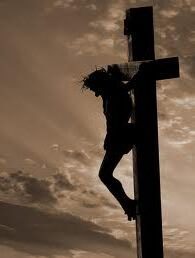 When you listen to the reading of The Passion, think of Love. It is the Greatest
When you listen to the reading of The Passion, think of Love. It is the Greatest 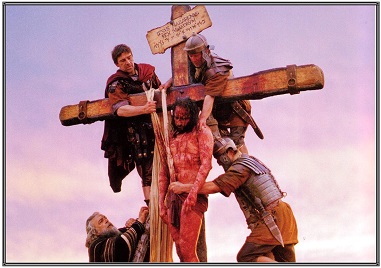
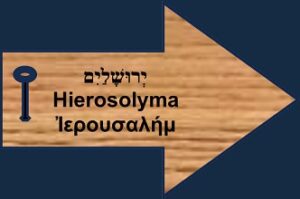
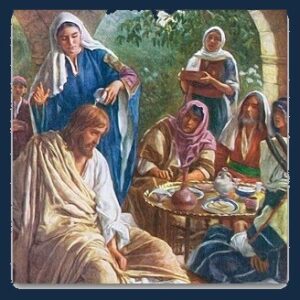 Journey to Jerusalem. Jesus was in Bethany, close to Bethphage Βηθφαγή, (Béthphagé) {bayth-fag-ay’} which is from an Aramaic word meaning “Place of new – or unripe – figs” near the base of the Mount of Olives. While reclined at table (chairs were not used as in this image), an unnamed woman anoints him with nard. As the lovely fragrance fills the air, some of the guests complain it is too extravagant. Jesus quiets them with yet another reference to his impending Sacrifice:
Journey to Jerusalem. Jesus was in Bethany, close to Bethphage Βηθφαγή, (Béthphagé) {bayth-fag-ay’} which is from an Aramaic word meaning “Place of new – or unripe – figs” near the base of the Mount of Olives. While reclined at table (chairs were not used as in this image), an unnamed woman anoints him with nard. As the lovely fragrance fills the air, some of the guests complain it is too extravagant. Jesus quiets them with yet another reference to his impending Sacrifice: 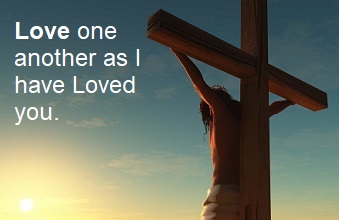
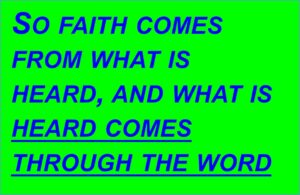 the word of Christ. (My underlining). We see those words, “Everyone who calls on the name of the Lord,” and remember “Not everyone who says to me, ‘Lord, Lord,’ will enter the kingdom of heaven, but only the one who does the will of my Father in heaven.” (See
the word of Christ. (My underlining). We see those words, “Everyone who calls on the name of the Lord,” and remember “Not everyone who says to me, ‘Lord, Lord,’ will enter the kingdom of heaven, but only the one who does the will of my Father in heaven.” (See 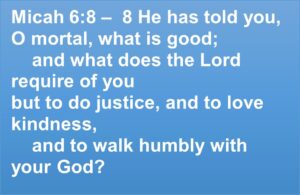 and doable goal, but in order to achieve that goal the primary objective is to do justice, and to love kindness, and to walk humbly with our God. (See
and doable goal, but in order to achieve that goal the primary objective is to do justice, and to love kindness, and to walk humbly with our God. (See  understood it until after his Ascension, and even then “some doubted.” (See
understood it until after his Ascension, and even then “some doubted.” (See 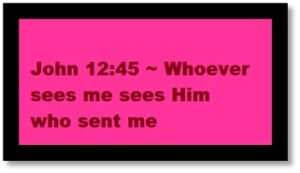 darkness. 47 I do not judge anyone who hears my words and does not keep them, for I came not to judge the world, but to save the world. 48 The one who rejects me and does not receive my word has a judge; on the last day the word that I have spoken will serve as judge, 49 for I have not spoken on my own, but the Father who sent me has himself given me a commandment about what to say and what to speak. 50 And I know that his commandment is eternal life. [YOLO-F] What I speak, therefore, I speak just as the Father has told me.” WE know this, and still, sometimes, we forget to listen. When that Day of Reward comes and on the last day the word that I have spoken will serve as judge, and we will perhaps ask, “Why didn’t we listen?”
darkness. 47 I do not judge anyone who hears my words and does not keep them, for I came not to judge the world, but to save the world. 48 The one who rejects me and does not receive my word has a judge; on the last day the word that I have spoken will serve as judge, 49 for I have not spoken on my own, but the Father who sent me has himself given me a commandment about what to say and what to speak. 50 And I know that his commandment is eternal life. [YOLO-F] What I speak, therefore, I speak just as the Father has told me.” WE know this, and still, sometimes, we forget to listen. When that Day of Reward comes and on the last day the word that I have spoken will serve as judge, and we will perhaps ask, “Why didn’t we listen?”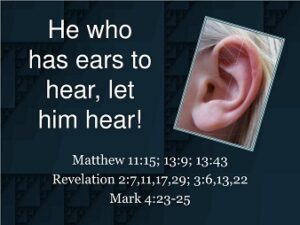
 nothing we can to about our state of sinfulness – it is inherent in our nature; however, there is something we can do about our sins. The first thing we can do is to resist sin and the desire to be tempted. In our
nothing we can to about our state of sinfulness – it is inherent in our nature; however, there is something we can do about our sins. The first thing we can do is to resist sin and the desire to be tempted. In our 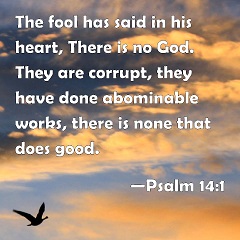 a crime, we can also be punished, and our punishment is designed to help us – perhaps even make us – lament our foolishness. Perhaps the most foolish sin of all is to believe that we cannot be caught out in our sin because no one will find out about it. Perhaps you recall “The fool says in his heart ‘There is no God.’” (See
a crime, we can also be punished, and our punishment is designed to help us – perhaps even make us – lament our foolishness. Perhaps the most foolish sin of all is to believe that we cannot be caught out in our sin because no one will find out about it. Perhaps you recall “The fool says in his heart ‘There is no God.’” (See 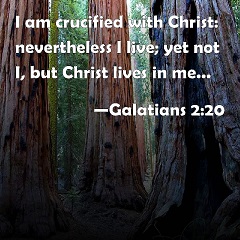 in Christ, and not by doing the works of the law, because no one will be justified by the works of the law. 17 But if, in our effort to be justified in Christ, we ourselves have been found to be sinners, is Christ then a servant of sin? Certainly not! 18 But if I build up again the very things that I once tore down, then I demonstrate that I am a transgressor. 19 For through the law I died to the law, so that I might live to God. I have been crucified with Christ; 20 and it is no longer I who live, but it is Christ who lives in me. And the life I now live in the flesh I live by faith in the Son of God, who loved me and gave himself for me.
in Christ, and not by doing the works of the law, because no one will be justified by the works of the law. 17 But if, in our effort to be justified in Christ, we ourselves have been found to be sinners, is Christ then a servant of sin? Certainly not! 18 But if I build up again the very things that I once tore down, then I demonstrate that I am a transgressor. 19 For through the law I died to the law, so that I might live to God. I have been crucified with Christ; 20 and it is no longer I who live, but it is Christ who lives in me. And the life I now live in the flesh I live by faith in the Son of God, who loved me and gave himself for me.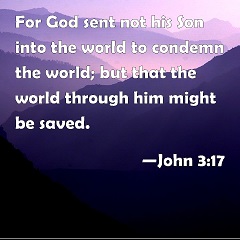 not condemned; but those who do not believe are condemned already, because they have not believed in the name of the only Son of God. 19 And this is the judgment, that the light has come into the world, and people loved darkness rather than light because their deeds were evil.” Yes, it’s the same old story of devastation, lamentation, salvation, and condemnation. But there’s the
not condemned; but those who do not believe are condemned already, because they have not believed in the name of the only Son of God. 19 And this is the judgment, that the light has come into the world, and people loved darkness rather than light because their deeds were evil.” Yes, it’s the same old story of devastation, lamentation, salvation, and condemnation. But there’s the 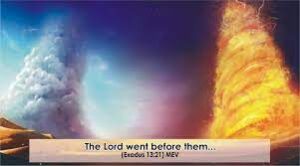 omnipresent, omnibenevolent, and with good reason expects us to know that. I say “with good reason” because we are created in his image and likeness, and therefore his own beloved creatures among all of his Creation. “Creature? How come you call me a creature when I am a child of God?” Go to Chapter 1, verse 12 of John to
omnipresent, omnibenevolent, and with good reason expects us to know that. I say “with good reason” because we are created in his image and likeness, and therefore his own beloved creatures among all of his Creation. “Creature? How come you call me a creature when I am a child of God?” Go to Chapter 1, verse 12 of John to 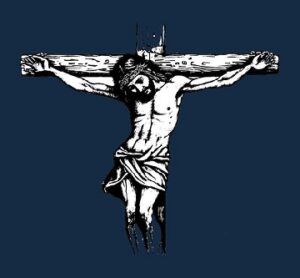 further insight into the Nature of God to be able to perceive his role in our salvation through Christ Jesus? Why do we preach “Christ crucified?” It was the death of Christ which accomplished our Salvation. It was the Resurrection of Christ which assured our reunion with God at the Day of Reward. If we choose – again choose – to make sense of that or to see proof of that, then that Old Serpent is having his way with us … again. God does not condemn those who have chosen to trust, Love and Obey him (See
further insight into the Nature of God to be able to perceive his role in our salvation through Christ Jesus? Why do we preach “Christ crucified?” It was the death of Christ which accomplished our Salvation. It was the Resurrection of Christ which assured our reunion with God at the Day of Reward. If we choose – again choose – to make sense of that or to see proof of that, then that Old Serpent is having his way with us … again. God does not condemn those who have chosen to trust, Love and Obey him (See 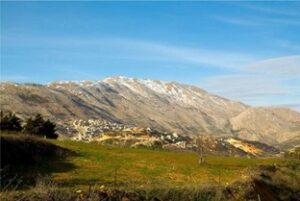 Jesus, of course, knew what was coming, but I can only imagine how the three Apostles must have reacted. In chapter 8 of the Gospel of Mark, Jesus and the Apostles are near Cæsarea Philippi. A very impressive mountain is nearby, Mount Herman, and is usually designated as the site of the Transfiguration of Christ. At an altitude of 9,230 feet, it is nearly three times higher than any other mountain in the region. Our Scripture says that they “went up a high mountain,” so perhaps not all the way to the top. Nonetheless, you can see that it must have been a long and steep hike! I used to think this took place at night, but it would be all the more difficult then. We can speculate, perhaps, that the Transfiguration and the hike back occurred after dusk, but there’s no way of truly knowing. We do know that it was at or near Cæsarea Philippi that Jesus asked the Apostles, “Who do people say that the Son of Man is?” There follows the astounding profession of faith from The Apostle Peter, “You are the Messiah, the Son of the living God.” We see this in
Jesus, of course, knew what was coming, but I can only imagine how the three Apostles must have reacted. In chapter 8 of the Gospel of Mark, Jesus and the Apostles are near Cæsarea Philippi. A very impressive mountain is nearby, Mount Herman, and is usually designated as the site of the Transfiguration of Christ. At an altitude of 9,230 feet, it is nearly three times higher than any other mountain in the region. Our Scripture says that they “went up a high mountain,” so perhaps not all the way to the top. Nonetheless, you can see that it must have been a long and steep hike! I used to think this took place at night, but it would be all the more difficult then. We can speculate, perhaps, that the Transfiguration and the hike back occurred after dusk, but there’s no way of truly knowing. We do know that it was at or near Cæsarea Philippi that Jesus asked the Apostles, “Who do people say that the Son of Man is?” There follows the astounding profession of faith from The Apostle Peter, “You are the Messiah, the Son of the living God.” We see this in 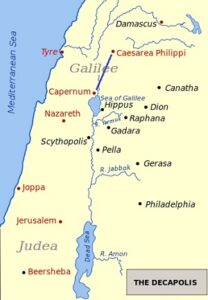 and the scribes, and be killed, and after three days rise again.” This is stated in
and the scribes, and be killed, and after three days rise again.” This is stated in  Jesus was and is The Perfect
Jesus was and is The Perfect 
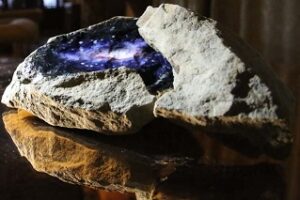 in a contract, the establishment sets the requirements and rules and measures the workers’ compliance. The workers agree to adhere to the stipulations of the contract. In biblical terms, a covenant is a shared agreement between God and his chosen creations, namely, those who solemnly promise through their sworn oath to live according to the qualifications set by God. God sets forth promises regarding his future actions. He spells out the terms of those promises and the rewards (whether positive or negative) for compliance. The terms of a covenant between God and his chosen ones require a commitment of one’s life to the Covenant Maker. The Covenant Maker gives a
in a contract, the establishment sets the requirements and rules and measures the workers’ compliance. The workers agree to adhere to the stipulations of the contract. In biblical terms, a covenant is a shared agreement between God and his chosen creations, namely, those who solemnly promise through their sworn oath to live according to the qualifications set by God. God sets forth promises regarding his future actions. He spells out the terms of those promises and the rewards (whether positive or negative) for compliance. The terms of a covenant between God and his chosen ones require a commitment of one’s life to the Covenant Maker. The Covenant Maker gives a 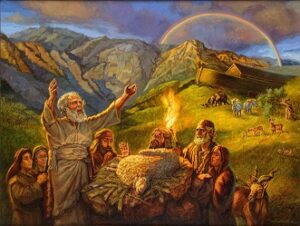 acceptance of the covenant. I’ll take a quote from Fr. Mike Schmitz here: “At the heart of religion is worship, and the heart of worship is sacrifice.” God promises to give us his Life in exchange for our lives. In the covenant set with Noah, God promised the waters shall never again become a flood to destroy all flesh. Once was enough because enough was completely effective! On Noah’s part, the Symbolon of the covenant was the sacred sacrifice of the conserved animals. On God’s part, it was the rainbow. (Incidentally, folks, God wants his rainbow back and used for what he intended it!) what we really need is a source of learning about this covenant. That’s why we turn to the B.I.B.L.E., the teaching of God in his Church, and the traditions handed down to us by the Apostles.
acceptance of the covenant. I’ll take a quote from Fr. Mike Schmitz here: “At the heart of religion is worship, and the heart of worship is sacrifice.” God promises to give us his Life in exchange for our lives. In the covenant set with Noah, God promised the waters shall never again become a flood to destroy all flesh. Once was enough because enough was completely effective! On Noah’s part, the Symbolon of the covenant was the sacred sacrifice of the conserved animals. On God’s part, it was the rainbow. (Incidentally, folks, God wants his rainbow back and used for what he intended it!) what we really need is a source of learning about this covenant. That’s why we turn to the B.I.B.L.E., the teaching of God in his Church, and the traditions handed down to us by the Apostles.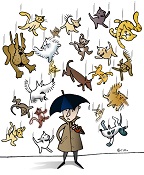 and only 8 people acted on those warnings. Third, it did not just “rain cats and dogs” (they were in the Ark 😉). You know the story – it rained HARD for 40 days and nights, and “all the fountains of the great deep burst forth, and the windows of the heavens were opened” so that the Earth was covered in water. Check out
and only 8 people acted on those warnings. Third, it did not just “rain cats and dogs” (they were in the Ark 😉). You know the story – it rained HARD for 40 days and nights, and “all the fountains of the great deep burst forth, and the windows of the heavens were opened” so that the Earth was covered in water. Check out 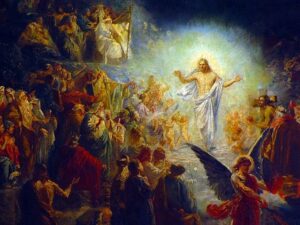 we know?
we know? 



